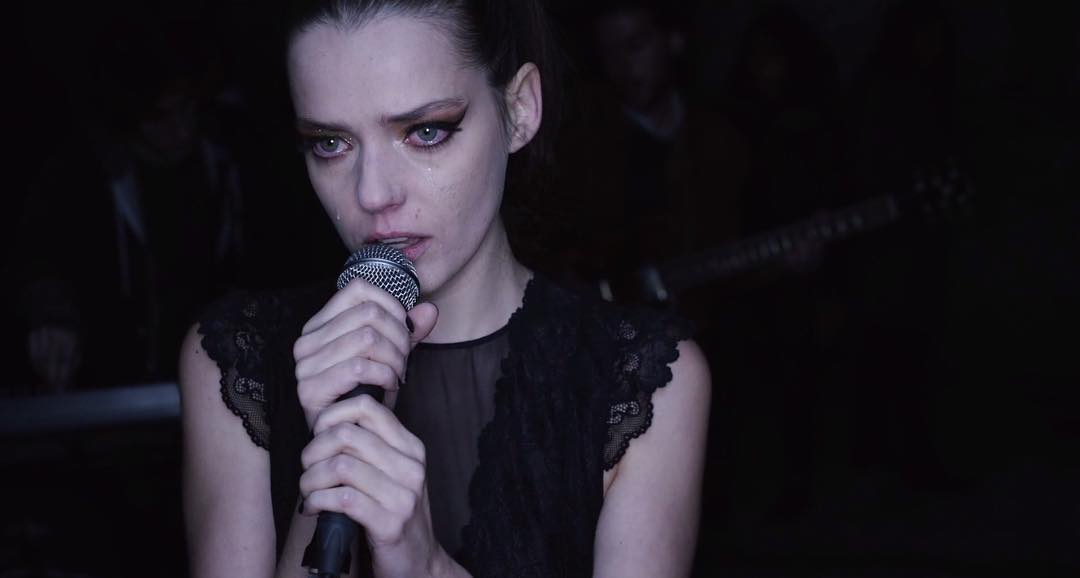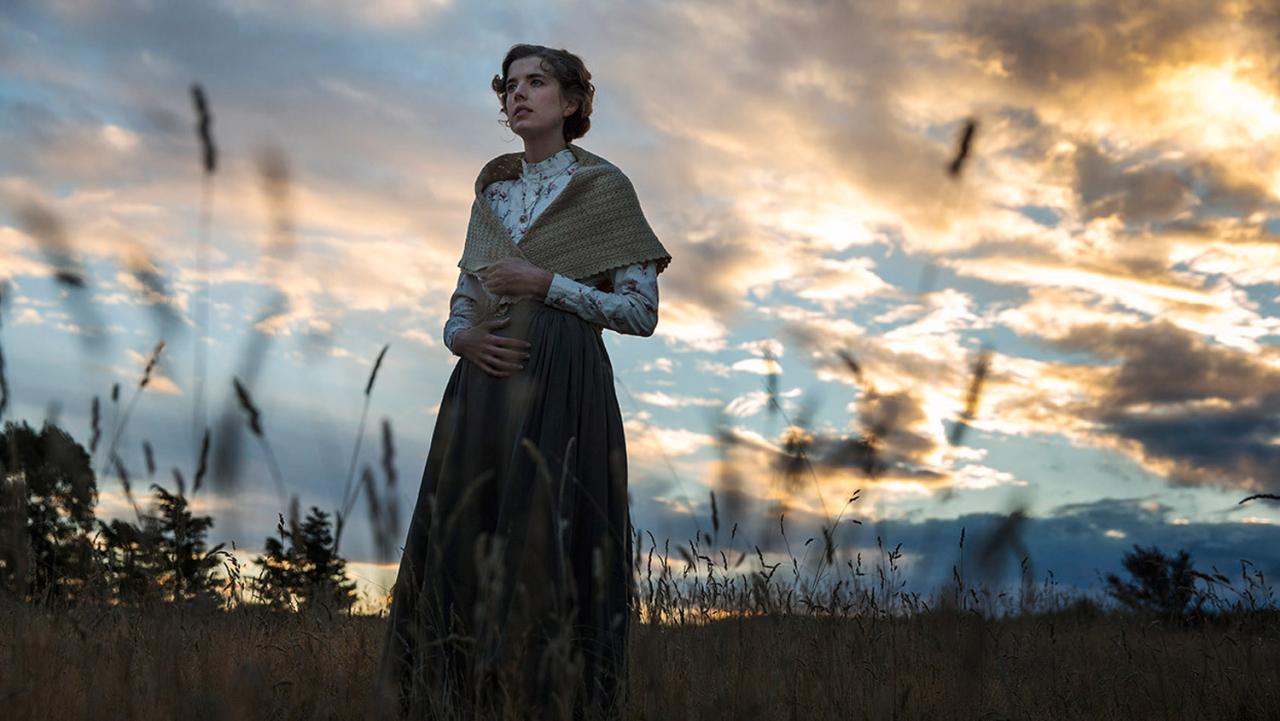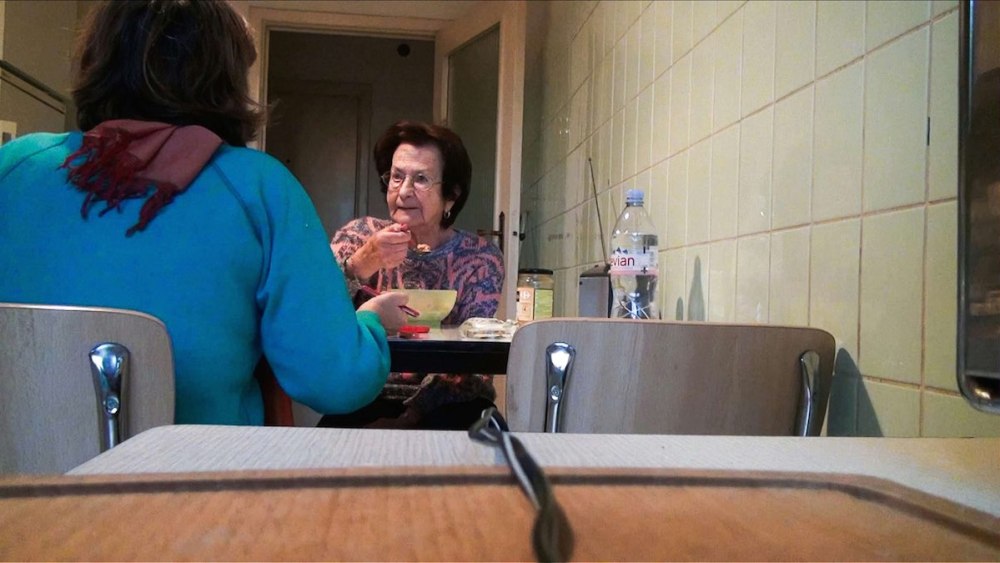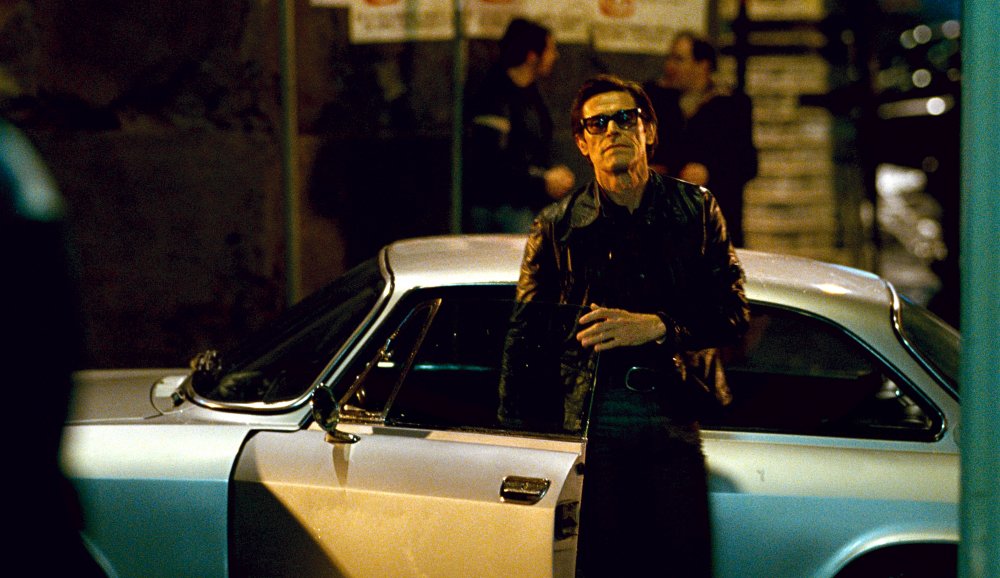6. Despite the Night (Philippe Grandrieux, 2015)

Philippe Grandrieux is one of the strongest experimental filmmakers working right now, and has been that way since his debut with Sombre in 1998, but Despite the Night was where his power in experimental direction and narrative strength came together in his best, and his most mainstream film to date. As with all of the other Grandrieux films, this one is certainly intent to distress and to disturb, and it definitely does a damn good job of it.
Much like Un Lac, A New Life and Sombre, this film has a clinical focus on creating a great tension, and drawing it out across the entire runtime, using these experimental features as a way to enhance these feelings to an overwhelming degree.
The story is difficult to follow at times, and intentionally so, as a way to disorientate the audience even more (as if they even needed it!), and the focus on these disturbing, deranged sexual acts and the way that oppression filters into those so easily is truly memorable and frightening in a way that few other films are. It is like Cronenberg at his most serious, then merged with the most technically focused directors of all (think Haneke, a very clinical way of directing that feels so aimed and so specific… and becomes so impressive), to say the least, and yet the film still flew under the radars of the majority of film fans.
Thankfully, more and more people seem to be slowly starting to warm to Grandrieux’s work, and with all of it being this consistently stunning, it is easy to see why those who dare to venture into such a disturbing filmography soon fly through it in its entirety and leave the other end feeling battered and bruised, but rewarded in a way that few other films can give.
7. Sunset Song (Terence Davies, 2015)

Terence Davies has been an established film genius since the 1980s, with his gorgeous, poetic films focused largely on telling semi-autobiographical stories through the lens of something more fantastical than real life, and more recently, he has proved himself as a filmmaking veteran with his gradual moving in genre, from personal dramas to period pieces, documentaries and most recently a biopic for poet Emily Dickinson with A Quiet Passion (another film worth viewing that slid under the radar recently).
Sunset Song was the start of this new venture into period drama filmmaking, and what a start it was. Taking the more enchanting, poetic lens through which all of Davies films are seen, applying it to a much rougher, meaner background and time period, Davies really diversified his own style, and ended up making an entirely new one in doing so, giving his work a beautiful breath of fresh air.
Alongside this refreshing work is the additional emotion placed in this. By detaching from some of his typical ideologies and his usual focus on children, Davies takes this coming of age story (more focused on a young teen woman’s rough walk into adulthood, and further) even further than he had ventured up to this point in his career, becoming more ambitious (something he would go on to top once more with A Quiet Passion).
The real surprise here comes in the emotional versatility. Very few films are both as absorbingly gorgeous or as abrasively heartbreaking as Sunset Song is, and that is what makes it so memorable to the majority of those who did happen to see it. Davies continues to prove himself as one of the most consistently brilliant directors of all time, and Sunset Song is just another diamond in his repertoire.
8. No Home Movie (Chantal Akerman, 2015)

Chantal Akerman’s name is no doubt a name that most everyone reading this will recognise instantly, most likely for her films of the 1970s – Jeanne Dielman and News From Home – but No Home Movie, for some reason, went largely unnoticed aside from by Akerman’s core fans and the occasional film fan who just happens to innocently stumble across it.
Akerman does something entirely new for her here, though, and makes a very personal (this isn’t so new) documentary, following her relationship with her mother in incredibly intimate detail. It’s a beautiful film, but it isn’t all sunshine and roses, sadly, as it is following this relationship during the toughest part – whilst Akerman’s mother is sick… very sick.
The majority of the film simply focuses on conversations, or the mundane actions of a mother and daughter (whether they are done together or in solitude), but this mundanity comes to feel so much larger than life, as the relationship at the centre of the film is just so unbearably touching. It would make for a mesmerising triple bill alongside Josh Mond’s James White (released in the very same year) and Aleksandr Sokurov’s 1997 masterpiece Mother and Son… a double bill as enchanting as it would be completely crushing.
It’s still surprising that this one mostly failed to gather together the audience imagined for it (the same could be said for a lot of Akerman’s work, sadly), especially considering that few films released in recent memory are anywhere close to being as powerful as this, and if any Akerman film is deserving of a re-discovery, it’s this. See it.
9. 88:88 (Isiah Medina, 2015)

An experimental feature film available in its entirety on Vimeo, Isiah Medina’s 2015 film quickly became a favourite of most anyone who managed to dig it out. Using both a wildly experimental and a strikingly intimate lens to produce a very new and exciting style all of its own, 88:88 is a film that follows the lives of a group of artists, although the more abstract narrative makes this the background to the overwhelming mix of visuals, the beautiful, frantic cutting and the beautiful intimacy shared with the audience for so much of the film.
Medina has been proving himself as an immense talent for a few years now, with a new feature rumoured to be releasing this year, but 88:88 remains his biggest achievement, and likely his most recognised/acclaimed film, but still is completely underrated by numerous film fans.
It’s a real shame, as Medina truly bears his soul and wears his heart on his sleeve here, and produces such a beautiful work that feels completely by itself in terms of quality in contemporary experimental cinema – Medina is almost unmatched, and continues to consistently slip under the radar. With a few of his films available in their entirety on Vimeo, and more on the way, there isn’t a much better time to start investigating the wonderful work of a truly promising director.
10. Pasolini (Abel Ferrara, 2014)

Abel Ferrara is a name that, much like Akerman’s, may be known by a fair amount of Taste of Cinema’s readers, however, so many of his films continue to slip under the radar, and so undeservedly! Similarly to the likes of Spike Lee, Abel Ferrara is a director with a case wherein one film becomes massively popular, and the rest goes unnoticed. It’s a shame that the Ferrara film that did take off happened to be Bad Lieutenant, by no means a bad film, but also a far cry from Ferrara’s finest, however, it is a wonder, either way, as to why Pasolini failed to get the recognition it deserved.
Focusing in on the last day of Pasolini’s life (played so brilliantly by Willem Dafoe), the film follows a group of conversations and giving a very thoughtful and tender look into one of cinema’s most notorious controversialists. Interestingly, Ferrara himself claimed that “This film isn’t about Pasolini, it’s about you, me, all of us…”, in the way that it looks at us taking our lives for granted.
Of all of Ferrara’s work, this must be the most gentle as, for the majority of its runtime, it seems more than content in simply existing, watching Pasolini pass from moment to moment… but upon returning to it, there is an elegant kind of pain behind most every frame knowing what is coming for Pasolini, and this pain is only doubled by knowing for a fact that Pasolini has no idea, that he is just living out another day in his mind.
It’s a thoroughly interesting film, and one of Ferrara’s very best, working as a wonderful, emotional character study as well as a terrific look into important use of location in cinema, provocation and politics in art and/or cinema. Dafoe gives a very powerful performance, with his physical resemblance to Pasolini also being quite shocking, and Ferrara finally proves many of his naysayers wrong in making a very thoughtful and respectful film about one of cinema’s greatest directors.